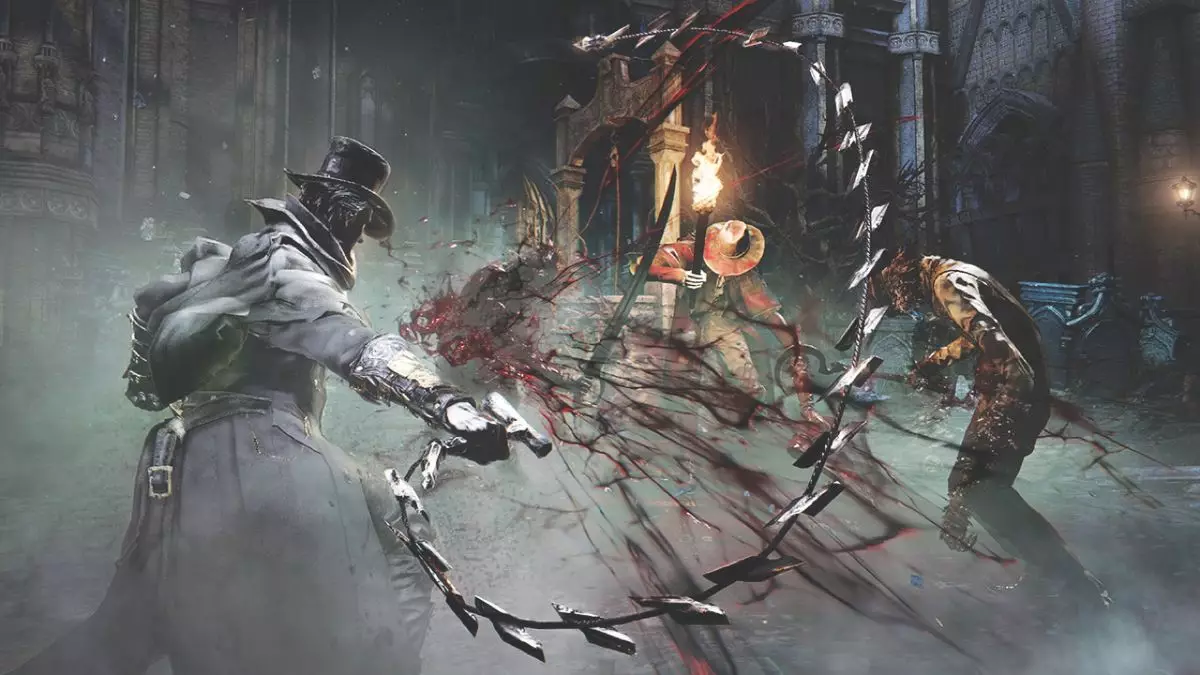For many gaming enthusiasts, the knowledge that beloved titles could be given a fresh lease on life through remasters or sequels is an exhilarating possibility. Yet, for those hoping for an update on “Bloodborne” during Sony’s recent State of Play presentation, the outcome was again disappointing. Despite community requests and fervent discussions across platforms like Reddit, evidence suggests that the fate of this iconic title hangs in a delicate balance, with little indication of imminent support from PlayStation.
One cannot help but notice the frustrating juxtaposition of Sony’s recent choices. The remastering of “Days Gone,” a game that failed to ignite enthusiasm upon its release, stands starkly against the backdrop of “Bloodborne,” a critically acclaimed title that continues to hold a special place in the hearts of players. It raises a significant question: Why does a less successful game receive resources and attention that “Bloodborne” seems perpetually denied? The outcries from fans showcase a sense of disillusionment, as they ponder why their cherished game has been left languishing in obscurity.
This disconnect underscores the frustration felt by the community, particularly as they reflect on the love and enthusiasm that “Bloodborne” garnered during its initial release. The game won accolades for its atmospheric storytelling, brilliant gameplay mechanics, and hauntingly beautiful world design. Yet, here we stand, vastly disappointed as discussions of a remaster remain just that—discussions devoid of action.
The discourse surrounding “Bloodborne” reveals a cycle of optimism—a bizarre dance between hope and bitter reality. Players often enter public broadcasts and announcements filled with excitement, buoyed by anticipation. Yet, time after time, their hopes are met with deafening silence. Many try to convince themselves that dilution of their expectations might ease the sting of disappointment, as evidenced by social media threads where fans cheerfully engage in the idea of having their hopes dashed repeatedly.
But the perils of declaiming naivety can be a double-edged sword. Players risk exposing themselves to crushing disappointment when those dreams are inevitably tempered by reality. This emotional rollercoaster, borne from such fervent desire for recognition and rejuvenation of “Bloodborne,” leaves fans reeling as they grapple with both hope and despair.
Faced with these unfulfilled hopes, perhaps the time has come to embrace an attitude of radical acceptance. This does not mean surrendering to disappointment but rather finding solace in what “Bloodborne” has already given us. The game, originally released in 2015, has left an indelible mark on the gaming landscape with its unique blend of challenging gameplay and captivating narrative. Instead of pining for what may or may not come in terms of remasters or sequels, players could strive to celebrate the legacy of the game as it exists today.
Acknowledge the profound artistry and emotional experiences that “Bloodborne” has fostered throughout its existence. Let the memories of thrilling challenges and richly crafted environments wash over any lingering frustration. Instead of fixating on a hypothetical future that may never materialize, players can revel in the game itself, perhaps rediscovering hidden layers of its narrative or challenging themselves with its thrilling combat.
As the 10th anniversary of “Bloodborne” draws near, fans should muster a sense of resiliency rather than frustration. Engage with the surrounding community, discuss what made the game special, and acknowledge its lasting impact instead of dwelling on the uncertainty of potential remasters. The reality is that while formal recognition from PlayStation may be lacking, the love for “Bloodborne” remains evergreen in the hearts of its players.
While the industry may fluctuate with trends and decisions that are often perplexing, the memories, and the dynamic experience of playing “Bloodborne” itself endure. It is through acceptance and preparedness for both joy and disappointment that players can cultivate a healthier relationship with their cherished games—not just clinging to what they wish could be, but celebrating what has already been achieved.

